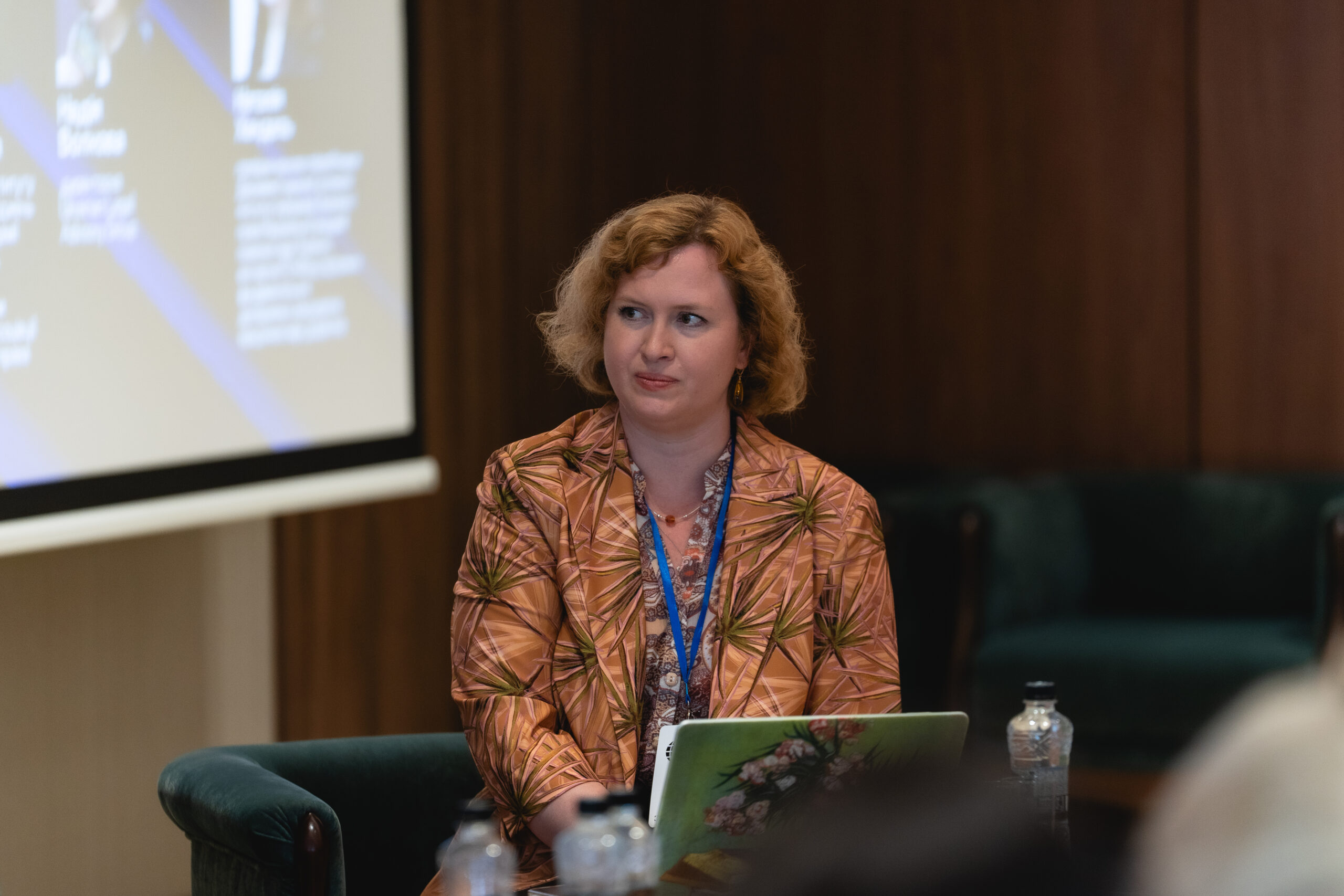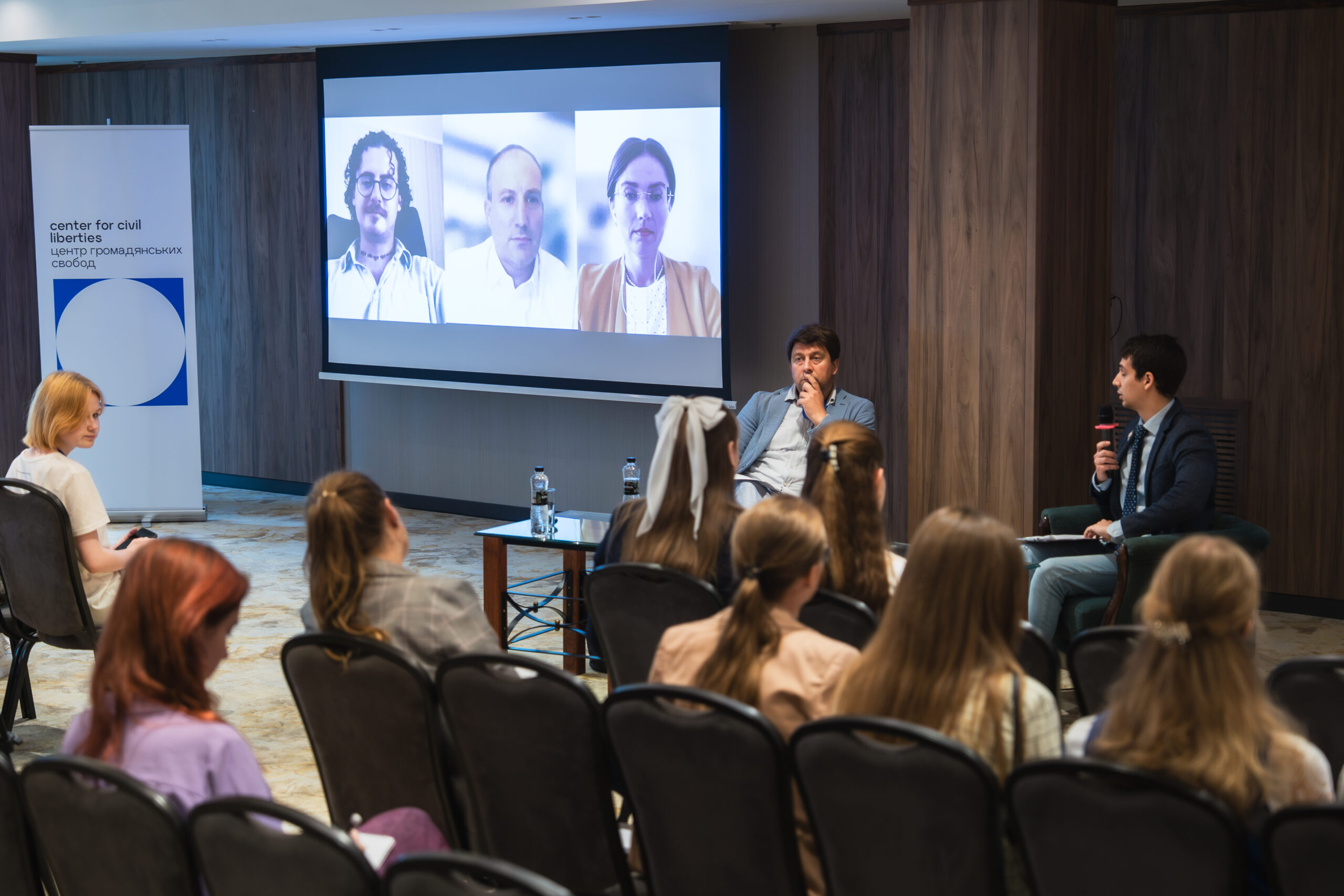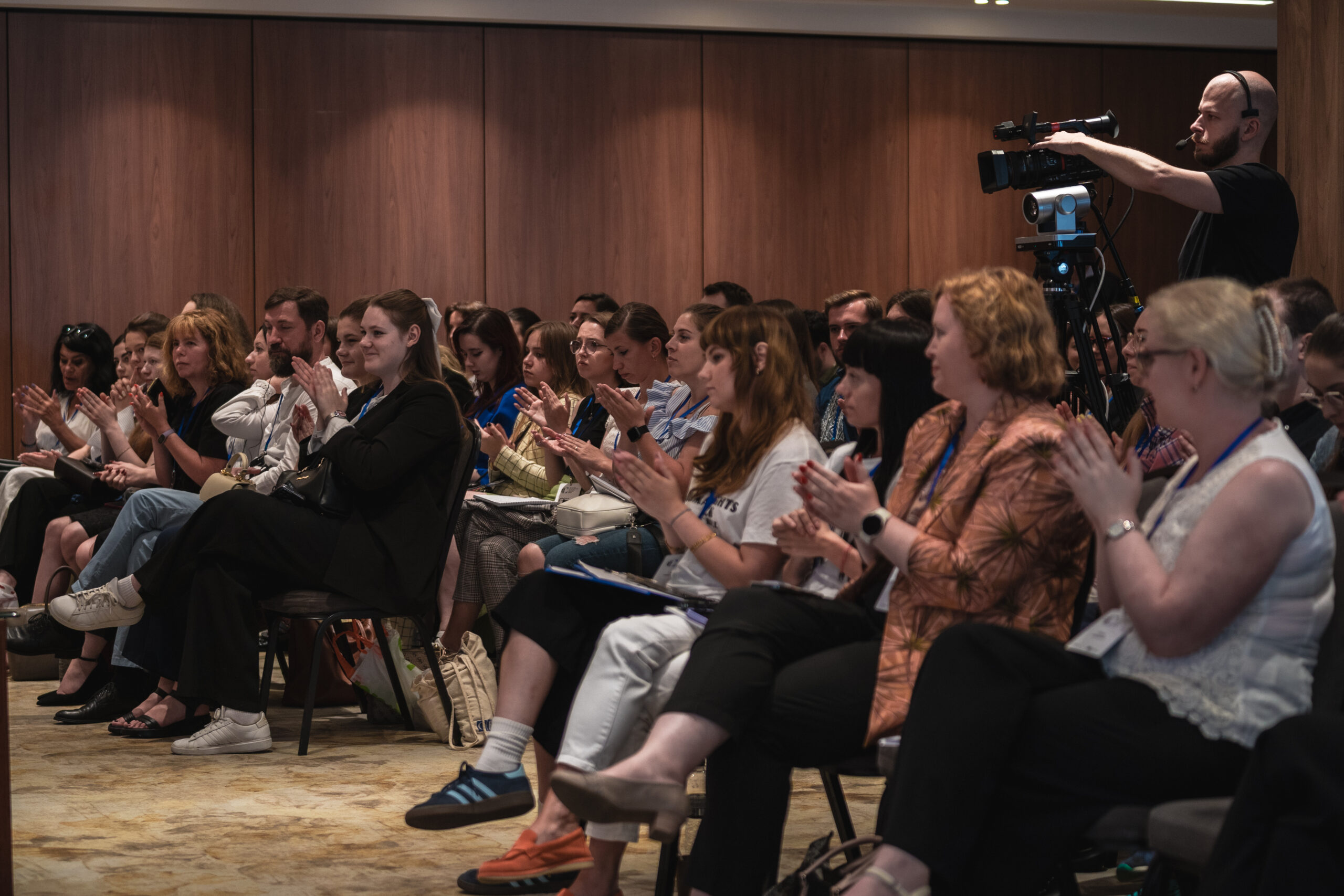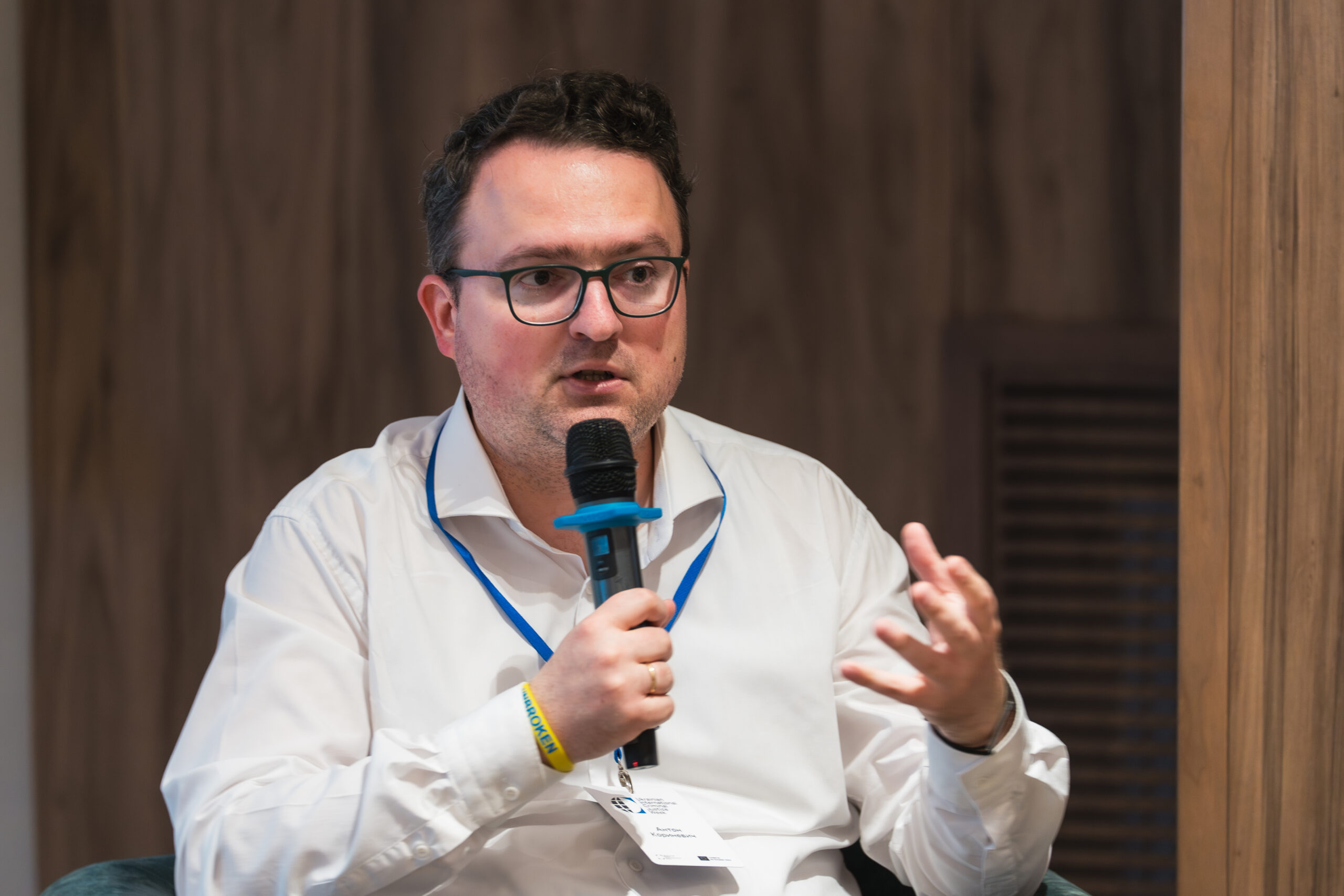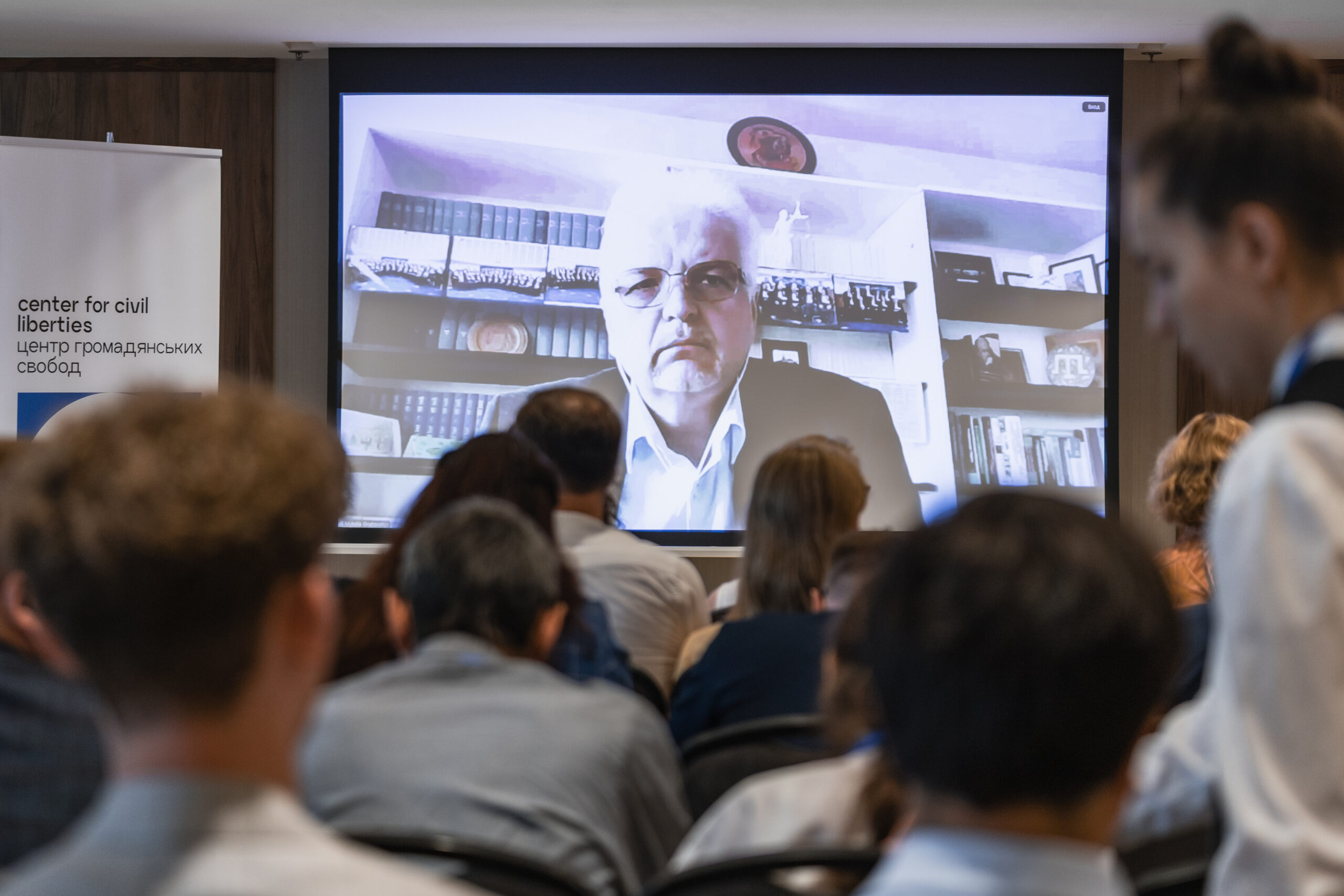On July 17, as part of the Ukrainian Week of International Criminal Justice, a panel discussion was held on the topic “What Future Awaits the International Criminal Court (ICC).” The moderator of the event was Natalia Hendel, the leading research fellow at the Institute of Information, Security and Law of the National Academy of Legal Sciences of Ukraine, an expert with the NGO “Fund for Support of Fundamental Research,” the Candidate of Legal Sciences, and the Associate Professor. The panel brought together prominent Ukrainian and international experts to discuss the role of the International Criminal Court in the modern system of international justice, the challenges linked to its jurisdiction and institutional trust, and the influence of politics and state interests on the effectiveness of its work.
The speakers included: Kateryna Rashevska — international law expert at the Regional Center for Human Rights; Hanna Kuchynska — professor at the Polish Academy of Sciences and president of the Polish group of the International Association of Penal Law; Dov Jacobs — the ICC and UN tribunal lawyer, as well as the co-founder of the ICC Bar Association (ICCCBA); and Nadiya Volkova — the director of the Ukrainian Legal Advisory Group.
“The ICC is currently facing serious criticism — it does so both in the professional community and the media. This is often connected to the lack of cooperation from its member states and due to how politics impacts its functioning. Many states are unwilling to participate in achieving the shared goal of holding the perpetrators accountable. Some avoid the ICC’s jurisdiction, transforming the subject of international justice into a bargaining chip. We have already discussed that on a previous panel — the abuse of international law, manipulation around the potential peace negotiations, together with the issue of impunity. However, despite all of that, ICC has a clear mandate, set out in its Statute, and remains an achievement for the international community.
This court was created for the people, for victims, to protect the international legal order. And if today we are talking about its weakness, we must acknowledge that it stems not from the Court itself but because of the countries that refuse to cooperate with or undermine it. It is the states that created the international order, while ICC is the institution meant to safeguard it. If the court fails to succeed in its function, responsibility lies in the hands of those who do not meet their own obligations. Let us remember that both the United States and Russia signed the Rome Statute, yet later refused to ratify it.
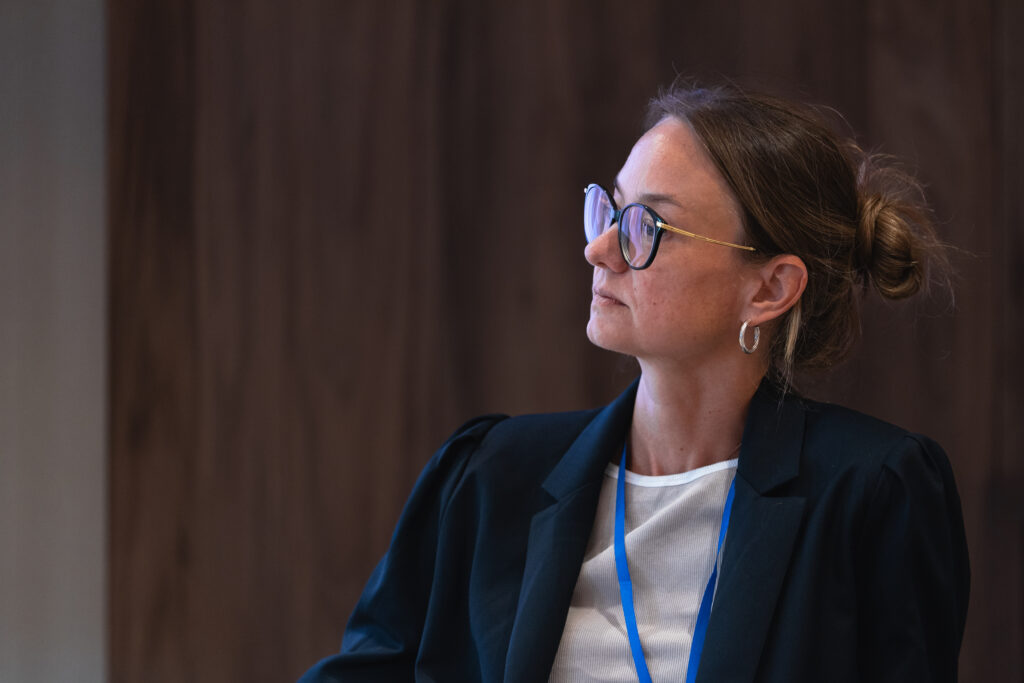
When we talk about the ICC, it is important to start not from its failures or from some premature conclusions about its “death,” but from the understanding of its role, tangible and necessary. We all bear the duty to emphasize it. The ICC establishes court precedents, shapes worldwide common legal awareness, and was created to defend the universal rule-of-law values. It exists not for itself but for humanity. All states that ratified the Statute agreed to take part in this mission — despite all political challenges and discrepancies between different strategic priorities,” — emphasized Hanna Kuchynska.
“Today, the International Criminal Court operates in an extraordinarily complicated political setting. Since its establishment in 1998, it has been under constant pressure, yet now it is especially powerful — notably due to the sanctions imposed on its prosecutors and judges from the United States. This significantly complicates the work of the Court. Nevertheless, we should not reduce the image of the ICC to its role as a victim of political sanctioning. Of course, the pressure exists because it is where the national interests, international relations, and politics intersect. Nevertheless, our work is about something surpassing that.
In the ICC Bar Association, we also face certain challenges, especially concerning international cooperation and accountability for international crimes — there are limits to what the ICC can do. Still, we fight daily and keep our hopes alive. If you wish, we could be compared to the “Guardians of the Galaxy” — we do our best to protect justice, even when this task seems daunting. The ICC is something that constantly brings itself back to life, like the phoenix that rises from the dust. This is where its strength lies,” — shared Dov Jacobs.
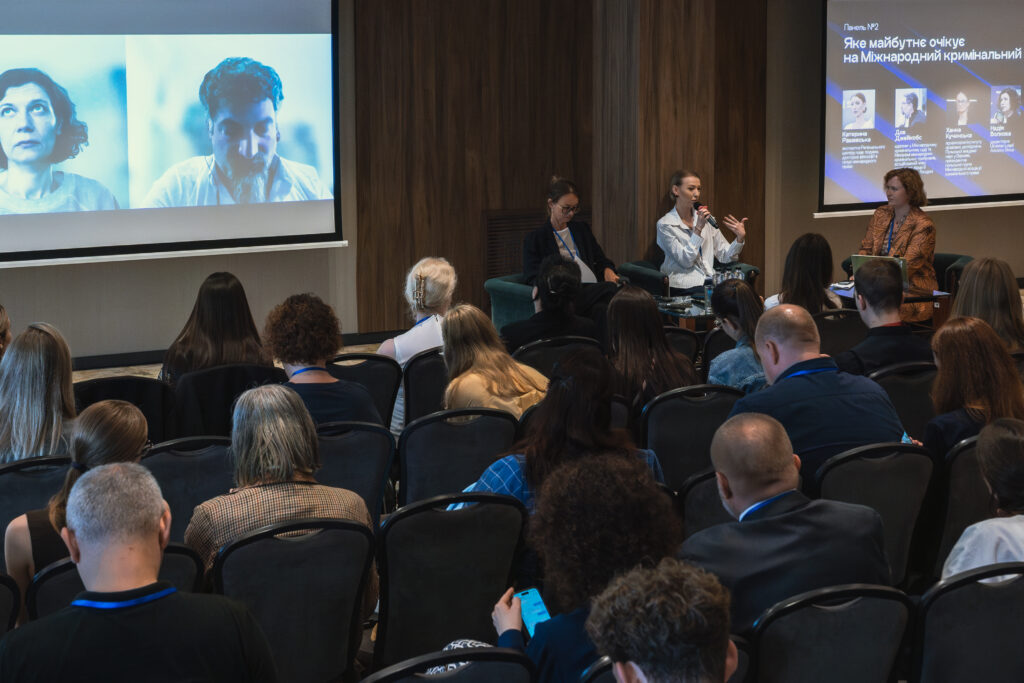
“Political processes undoubtedly alter the effectiveness of the work of the ICC. What does the future hold for the ICC? How can it change its approach in order to stay a strong institution for the sake of justice and stability of the international legal order?” — inquired Nataliia Hendel.
“First, regarding the political pressure. It is a serious challenge that arrest warrants are not executed, as it is a fact that sanctions were imposed on Prosecutor Karim Khan and ICC judges. I can officially confirm that the corresponding order was issued by the Trump administration — it is still publicly accessible while Karim Khan is listed in Annex A as a sanctioned person. This eminently perplexes the work of the Court. Meanwhile, it is not only Mongolia that failed to enforce the arrest warrant. We have seen the same happening in Italy — the country that positions itself as an avid supporter of justice but does not comply with Court decisions even in cases of war crimes, such as those committed by General Al-Maslivakh — crimes against children and against humanity as a whole.
This is deeply important because such a precedent affects the global perception of international justice. Some countries start asking: “If the European Union, with all of its high legal standards, does not comply with the Court decisions, why should we?” This has a direct impact on the cases concerning Ukraine — what happens in one place does resonate elsewhere.
Second, when we have a conversation about sanctions, it is worth recognizing that their consequences go far beyond travel bans or asset freezes. For instance, we are now seeing a significant reduction in funding for Ukrainian NGOs that engage in documenting war crimes, genocide, and crimes against humanity. These are organizations that work with the Prosecutor General’s Office and Security Service of Ukraine, along with assisting the ICC. At the same time, now, due to political decisions, their work is getting increasingly difficult. Some have had their budgets cut, others have had their support suspended. Namely, the Yale Humanitarian Research Lab, which was directly involved in documenting war crimes against Ukrainian children, has also faced interruption in its funding.
This also relates to technology — in particular, to the software provided by U.S. companies to Ukrainian partners for enhanced evidence collection and analysis. If these platforms become no longer accessible, it will concurrently harm both the day-to-day investigative process and the exercise of accountability in the future. That is why sanctions are not merely about visa restrictions — they are also a technical and financial blow.
Third, in the matter of peace agreements and negotiations. I am actively involved in this endeavor. I am very concerned about the possible use of Article 16 of the Rome Statute — that is, the potential suspension of investigations, such as one against Putin. It is no coincidence that he chooses to travel to the countries where the arrest warrant will not be enforced. It is possible to do so with Mongolia, but not with Indonesia, Brazil, or South Africa. And this is very telling. Here, we are speaking not just of legal norms, but of political signals. The UN Secretary General, who paid a visit to Kazan in October 2024, literally one day before Mongolia’s refusal to meet its obligations before the ICC, is trying to present it as a step toward peace. In fact, it is the legitimization of the aggressor. This is absurd and disregards international justice, because the words do not equate the actions.
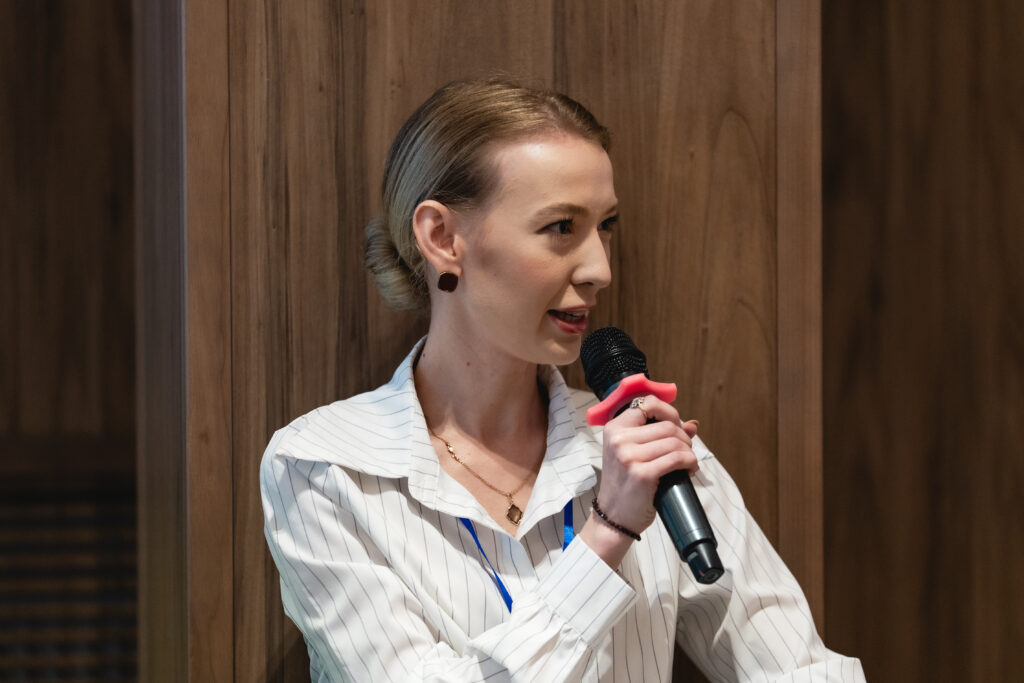
Nonetheless, regardless of these challenges, I want to keep myself optimistic. I know that much of the work of the ICC is not public. Yes, we may not always see the results, but work is ongoing behind the scenes. I hope that the investigations on the situation in Ukraine will proceed successfully, and I desire that the U.S. will not use Article 16 to block proceedings against Putin. Therefore, I am sure that despite the pressure, politics, and funding cuts, the ICC has potential, and investigations into Ukraine will go on,” — outlined Kateryna Rashevska.
“I want to take our conversation into a more global context — focusing on the role of civil society in supporting the operation of the ICC. It is precisely the civil society that is crucial for this institution’s continued success. We can see that Kateryna has an optimistic outlook about the future of humanity and about our development toward a better world. However, it is important to remember that the ICC has had to fight for its survival since day one. The ICC is only 25 years old — it is young for an international institution. If we continue to draw the analogies we heard today, the ICC is still a teenager. If we want it to grow strong and influential, we must ‘raise’ it properly.
A big part of this growth is resistance to political pressure. We all agree that politics should not interfere with justice, as the latter should be impartial. However, for politicians, justice often looks like a threat — though in reality, it is not. They must recognize that achieving justice is in their own interest. Sanctions, imposed on the ICC over its positions on Israel or Ukraine — perhaps, Russia did not pressure directly, although we see attempts at security coercion, discreditation of Court staff, use of propaganda, manipulation of public opinion, through monitoring of the Court’s activities. No organization can withstand such pressure indefinitely. Yet, that does not mean we should stop. We must keep going,” — added Nadiya Volkova.
“We all want the ICC to run effectively, but we cannot ignore the current political landscape we are situated in, because we have the political influence from the states that have not joined the Rome Statute. And when we make any decisions against a head of state, we have to be ready for political pushback from them. Despite the fact that there was a universal ambition, the ICC is not a universal court — that is our reality. It was not designed to deal exclusively with non-state actors. But the difficulty is that it deals so directly and so exclusively with non-state actors that this brings political pressure and causes setbacks,” — stressed Dov Jacobs.
The synopsis was created by Khrystyna Zhevlakova, a volunteer at the Center for Civil Liberties.

